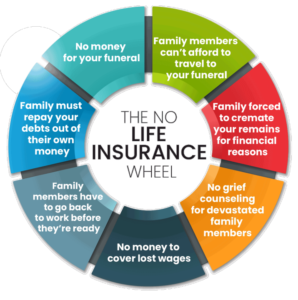10 Benefits of life insurance Uihasdp
Introduction
Understanding Life Insurance
Life insurance might sound like a complex financial product, but at its core, it’s a simple concept. It’s an agreement between you and an insurance provider that ensures your family or dependents receive financial compensation after your passing. This small step today can secure your family’s tomorrow, ensuring they’re not left struggling financially during an already difficult time.
Why Life Insurance Matters
Think of life insurance as a safety net. Life is unpredictable, and the certainty of having a financial cushion can bring immense peace of mind. Whether it’s ensuring your children’s education or protecting your spouse from the burden of debt, life insurance has your back.
Key Benefits of Life Insurance
Financial Security for Loved Ones
The primary goal of life insurance is to ensure your family’s financial stability. It helps cover living expenses, from monthly bills to groceries, so your family doesn’t have to compromise on their standard of living. Beyond the basics, life insurance can fund significant milestones like college education or a wedding, ensuring your loved ones can achieve their dreams even in your absence.
Tax Benefits
Who doesn’t love saving on taxes? Life insurance policies often offer tax-free payouts, ensuring your beneficiaries receive the full amount without deductions. Additionally, premiums paid toward certain types of policies might qualify for tax benefits under your country’s tax laws.
Wealth Creation and Savings
Life insurance isn’t just about protection; it’s also a way to build wealth. Many policies offer a savings or investment component, where a portion of your premium grows over time. Endowment plans, for instance, ensure you get a lump sum after a specific term, providing financial support even if nothing untoward happens.

Debt Protection
Imagine leaving behind unpaid loans or mortgages. That burden shouldn’t fall on your family. With a life insurance policy, your debts are covered, ensuring your loved ones can retain assets like a home or a car without financial strain.
Business Continuity Planning
If you’re a business owner, life insurance can be a game-changer. It supports succession planning, ensures obligations like loans or partner payouts are met, and keeps your business running smoothly even in your absence.
Types of Life Insurance and Their Benefits
Term Life Insurance
This is the simplest form of life insurance, offering high coverage at an affordable rate. While it doesn’t have a savings component, it’s ideal for covering temporary needs, such as your children’s education or mortgage payments.
Whole Life Insurance
As the name suggests, whole life insurance provides lifelong coverage. Additionally, it accumulates cash value over time, which can be borrowed against or used to fund future needs.
Universal Life Insurance
This type offers flexibility. You can adjust your premiums and death benefits as your financial situation changes. Plus, it combines insurance with investment opportunities, giving your money a chance to grow.
Variable Life Insurance
Want a policy that’s as unique as you are? Variable life insurance allows you to choose from a variety of investment options, offering the potential for high returns. However, with greater rewards come greater risks, so it’s essential to tread carefully.
Benefits of life insurance Uihasdp
How to Choose the Right Life Insurance
Assessing Your Needs
What’s the right policy for you? It depends on various factors, like your age, income, dependents, and financial goals. Take stock of your life situation and match your coverage to your long-term objectives.
Comparing Policies
Don’t just go with the first policy you see. Compare options, read the fine print, and consult a financial advisor if needed. The goal is to find a policy that fits your needs without straining your budget.
Common Misconceptions About Life Insurance
- It’s Only for the Elderly: The earlier you buy, the cheaper your premiums.
- It’s Too Expensive: Many affordable plans exist for every budget.
- Policies Are Too Complex: With proper guidance, understanding your options becomes much easier.
Conclusion
Summary of Benefits
Life insurance isn’t just a safety net—it’s a foundation for your family’s financial future. From tax benefits to wealth creation, its advantages are numerous and impactful.
10 Benefits of life insurance Uihasdp
Encouragement to Take Action
Don’t wait for the “perfect” time. Securing life insurance today means peace of mind for you and your loved ones tomorrow.

FAQs
What is the ideal age to buy life insurance?
The earlier, the better! Premiums are lower when you’re younger.
How much life insurance coverage do I need?
It depends on your income, debts, and family’s financial goals.
Are there life insurance options for people with health conditions?
Yes, many policies cater specifically to those with medical issues.
Can I customize my life insurance policy?
Absolutely. Riders and add-ons let you tailor coverage to your needs.
70 FAQs on the 10 Benefits of Life Insurance
Section 1: General Questions About Life Insurance
- What is life insurance?
Life insurance is a contract between a policyholder and an insurer where the insurer guarantees payment to beneficiaries upon the insured’s death in exchange for premium payments. - How does life insurance work?
Life insurance provides a financial payout to beneficiaries when the insured person passes away, offering financial support for expenses, debts, or future needs. - Why should I buy life insurance?
Life insurance offers financial protection to your loved ones, helping cover expenses like funeral costs, debts, or living costs after your death. - What are the main benefits of life insurance?
Life insurance benefits include financial security for loved ones, tax benefits, debt coverage, peace of mind, and wealth creation over time. - Who needs life insurance the most?
Individuals with dependents, parents, business owners, and anyone who wants to ensure financial stability for their family in case of their death.
Section 2: Financial Protection
- How does life insurance provide financial security?
It ensures your family receives a sum of money to cover expenses, maintain their lifestyle, or secure their future if you’re no longer around. - Can life insurance replace lost income?
Yes, the payout can act as a replacement for lost income to support dependents. - How much financial coverage do I need?
This depends on factors like your income, debts, dependents, and future financial goals. - Can life insurance be used for daily expenses?
Yes, beneficiaries can use the payout for anything, including daily living expenses. - What happens if the policyholder outlives the policy term?
Some policies, like term insurance, may expire with no payout, while others, like whole life insurance, offer a maturity benefit.
Section 3: Debt Coverage
- Can life insurance help pay off debts?
Yes, the payout can cover outstanding debts like mortgages, loans, or credit card bills. - What types of debts can life insurance cover?
Mortgages, personal loans, business loans, student loans, and other liabilities. - Is life insurance necessary if I have no debts?
It can still provide financial security for your loved ones or help with future financial goals. - What happens to unpaid debts if there’s no life insurance?
Your estate might be used to settle debts, potentially leaving less for your heirs. - How does life insurance protect co-signers of loans?
It ensures the co-signer isn’t solely responsible for repaying the loan.
Section 4: Tax Benefits
- Are life insurance premiums tax-deductible?
In many countries, premiums may be eligible for tax deductions, but it depends on the local tax laws. - Is the payout from life insurance taxable?
Generally, life insurance payouts are tax-free for beneficiaries. - Can life insurance reduce my overall tax liability?
Yes, certain policies offer tax-saving benefits under specific tax regulations. - What are the tax benefits of investing in life insurance?
Premiums can lower taxable income, and payouts are often tax-exempt. - Does every life insurance policy offer tax benefits?
Most policies do, but the specifics depend on the policy type and jurisdiction.
Section 5: Wealth Creation
- How can life insurance help in wealth creation?
Certain policies, like whole life or ULIPs, offer investment components that grow over time. - Is life insurance a good investment?
It’s a safe option for long-term savings and financial protection. - What is the maturity benefit in life insurance?
It’s the amount paid to the policyholder if they outlive the policy term in certain plans. - Can life insurance be used as retirement savings?
Yes, policies with maturity benefits or annuities can supplement retirement funds. - How does life insurance compare to other investments?
Life insurance provides a mix of security, savings, and tax benefits, unlike riskier investments.
This FAQ list provides comprehensive answers to common queries about the benefits of life insurance, covering all aspects for your audience.
Read More: Life Insurance for Family uihasdp
What happens if I stop paying premiums?
It varies by policy. Some lapse, while others convert to paid-up policies.
Pingback: Life Insurance for Family uihasdp - uihasdp.com
Pingback: Top Benefits of Health Insurance Uihasdp - uihasdp.com
Pingback: 15 Eye-Opening Truths About Health Insurance: Benefits, Pitfalls, and Must-Know Tips - uihasdp.com